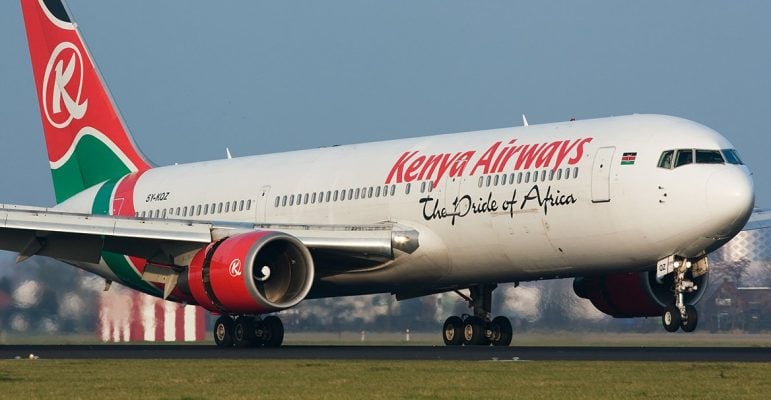The dispute between Kenya Airways and the Nigerian Civil Aviation Authority (NCAA) reached a significant milestone in September 2025 with the airline’s payment of a N3 million sanction fee. This payment stemmed from a series of passenger rights violations, most notably the case of Nigerian passenger Gloria Omisore, whose experience sparked public outrage and prompted a thorough investigation by the NCAA. While the payment signifies a step towards resolution, the NCAA emphasized that the matter remains open, particularly regarding the timely resolution of passenger complaints and the fulfillment of other aspects of the sanctions. The incident underscores the NCAA’s commitment to enforcing consumer protection regulations within Nigeria’s aviation sector and holding airlines accountable for their actions.
The Omisore incident unfolded in February 2025 when she was denied boarding on a Kenya Airways flight from Nairobi to Manchester via Paris. The airline cited her lack of a Schengen transit visa as the reason, despite allegedly assuring her earlier that such a visa wasn’t necessary. Stranded in Nairobi for an extended period and subsequently subjected to further delays, Omisore sought assistance from the airline, including accommodation and medical attention. Kenya Airways refused her requests, leading to a confrontation that was captured on video and widely circulated, further intensifying public scrutiny.
The NCAA’s subsequent investigation concluded that Kenya Airways had violated consumer protection regulations and issued a series of sanctions in May 2025. These included the N3 million fine, compensation of 1,000 Special Drawing Rights for each of the three affected passengers including Omisore, and a public apology. The NCAA clarified that these sanctions were corrective rather than punitive, aiming to improve the airline’s operations and passenger handling protocols. Despite this, the dispute continued for months, with negotiations between the airline, the NCAA, and even diplomatic involvement from the Kenyan High Commissioner to Nigeria.
The prolonged nature of the dispute highlights the complexities of international aviation regulations and the challenges of enforcing them. While Kenya Airways ultimately paid the fine in September 2025, six months after the initial sanctions were imposed, the NCAA insisted that the payment was merely one step in a larger process. The authority stressed the importance of addressing the original passenger complaints and ensuring that the airline takes corrective measures to prevent similar incidents in the future. This firm stance demonstrates the NCAA’s commitment to protecting passenger rights and maintaining high standards within Nigeria’s airspace.
The Omisore case and the resulting sanctions have significant implications for both passengers and airlines operating in Nigeria. For passengers, it reinforces the importance of understanding their rights and seeking redress when those rights are violated. The NCAA’s active intervention in this case signals a commitment to passenger protection and provides a mechanism for holding airlines accountable. For airlines, the incident serves as a strong reminder of the importance of regulatory compliance and the potential consequences of neglecting passenger rights. The substantial fine and the ongoing scrutiny from the NCAA demonstrate that operating in Nigeria requires adherence to strict standards of customer service and operational transparency.
Beyond the specific details of the Omisore case, the incident represents a broader shift in Nigeria’s aviation landscape. The NCAA’s decisive action reflects a growing emphasis on enforcing international aviation standards and protecting consumer rights. By taking on a major international carrier like Kenya Airways, the NCAA sends a clear message to all airlines operating within its jurisdiction that violations will be taken seriously and punished accordingly. This proactive approach not only strengthens passenger protections but also enhances the overall integrity and reputation of Nigeria’s aviation industry.
The resolution of this dispute, while marking a significant step forward, leaves several questions unanswered. The NCAA’s commitment to further action suggests that the full implications of the Omisore incident are yet to unfold. The focus now shifts to how Kenya Airways will address the outstanding complaints and implement measures to prevent future violations. The NCAA’s continued oversight will be crucial in ensuring that the airline fulfills its obligations and that the lessons learned from this incident contribute to a more passenger-centric aviation environment in Nigeria. The case ultimately serves as a powerful reminder of the importance of accountability and the power of regulatory bodies to protect consumer rights in a complex and globally interconnected industry.














